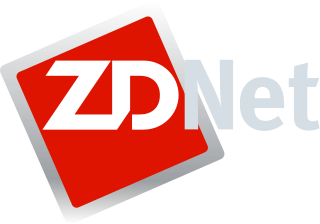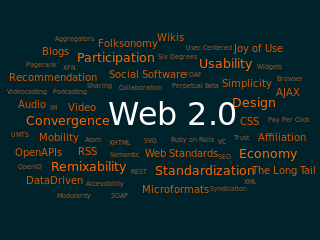Related Research Articles

Dave Winer is an American software developer, entrepreneur, and writer who resides in New York City. Winer is noted for his contributions to outliners, scripting, content management, and web services, as well as blogging and podcasting. He is the founder of the software companies Living Videotext, Userland Software and Small Picture Inc., a former contributing editor for the Web magazine HotWired, the author of the Scripting News weblog, a former research fellow at Harvard Law School, and current visiting scholar at New York University's Arthur L. Carter Journalism Institute.

The Internet is the global system of interconnected computer networks that uses the Internet protocol suite (TCP/IP) to communicate between networks and devices. It is a network of networks that consists of private, public, academic, business, and government networks of local to global scope, linked by a broad array of electronic, wireless, and optical networking technologies. The Internet carries a vast range of information resources and services, such as the inter-linked hypertext documents and applications of the World Wide Web (WWW), electronic mail, telephony, and file sharing.

Internet Explorer is a discontinued series of graphical web browsers developed by Microsoft and included in the Microsoft Windows line of operating systems, starting in 1995. It was first released as part of the add-on package Plus! for Windows 95 that year. Later versions were available as free downloads, or in-service packs, and included in the original equipment manufacturer (OEM) service releases of Windows 95 and later versions of Windows. New feature development for the browser was discontinued in 2016 in favor of new browser Microsoft Edge. Since Internet Explorer is a Windows component and is included in long-term lifecycle versions of Windows such as Windows Server 2019, it will continue to receive security updates until at least 2029. Microsoft 365 ended support for Internet Explorer on August 17, 2021, and Microsoft Teams ended support for IE on November 30, 2020. Internet Explorer will be discontinued on June 15, 2022, after which, the alternative will be Microsoft Edge with IE mode for legacy sites.
Slashdot is a social news website that originally billed itself as "News for Nerds. Stuff that Matters". It features news stories on science, technology, and politics that are submitted and evaluated by site users and editors. Each story has a comments section attached to it where users can add online comments. The website was founded in 1997 by Hope College students Rob Malda, also known as "CmdrTaco", and classmate Jeff Bates, also known as "Hemos". In 2012, they sold it to DHI Group, Inc.. In January 2016, BIZX acquired Slashdot Media, including both slashdot.org and SourceForge. In December 2019, BIZX rebranded to Slashdot Media.
A blog is a discussion or informational website published on the World Wide Web consisting of discrete, often informal diary-style text entries (posts). Posts are typically displayed in reverse chronological order, so that the most recent post appears first, at the top of the web page. Until 2009, blogs were usually the work of a single individual, occasionally of a small group, and often covered a single subject or topic. In the 2010s, "multi-author blogs" (MABs) emerged, featuring the writing of multiple authors and sometimes professionally edited. MABs from newspapers, other media outlets, universities, think tanks, advocacy groups, and similar institutions account for an increasing quantity of blog traffic. The rise of Twitter and other "microblogging" systems helps integrate MABs and single-author blogs into the news media. Blog can also be used as a verb, meaning to maintain or add content to a blog.
Microsoft Developer Network (MSDN) was the division of Microsoft responsible for managing the firm's relationship with developers and testers, such as hardware developers interested in the operating system (OS), and software developers developing on the various OS platforms or using the API or scripting languages of Microsoft's applications. The relationship management is situated in assorted media: web sites, newsletters, developer conferences, trade media, blogs and DVD distribution.

ZDNet is a business technology news website owned and operated by Red Ventures, along with TechRepublic. The brand was founded on April 1, 1991, as a general interest technology portal from Ziff Davis and evolved into an enterprise IT-focused online publication.

BBC News Online is the website of BBC News, the division of the BBC responsible for newsgathering and production.
Google Toolbar is a web browser toolbar for Internet Explorer, developed by Google. It was first released in 2000 for Internet Explorer 5. Google Toolbar was also supported on Firefox from September 2005 to June 2011.

BBC Online, formerly known as BBCi, is the BBC's online service. It is a large network of websites including such high-profile sites as BBC News and Sport, the on-demand video and radio services co-branded BBC iPlayer, the children's sites CBBC and CBeebies, and learning services such as Bitesize. The BBC has had an online presence supporting its TV and radio programmes and web-only initiatives since April 1994, but did not launch officially until 28 April 1997, following government approval to fund it by TV licence fee revenue as a service in its own right. Throughout its history, the online plans of the BBC have been subject to competition and complaint from its commercial rivals, which has resulted in various public consultations and government reviews to investigate their claims that its large presence and public funding distorts the UK market.
On the World Wide Web, a web feed is a data format used for providing users with frequently updated content. Content distributors syndicate a web feed, thereby allowing users to subscribe a channel to it by adding the feed resource address to a news aggregator client. Users typically subscribe to a feed by manually entering the URL of a feed or clicking a link in a web browser or by dragging the link from the web browser to the aggregator, thus "RSS and Atom files provide news updates from a website in a simple form for your computer."

Web 2.0 refers to websites that emphasize user-generated content, ease of use, participatory culture and interoperability for end users.
Weblogs, Inc. was a blog network that published content on a variety of subjects, including tech news, video games, automobiles and pop culture. At one point, the network had as many as 90 blogs, although the vast majority of its traffic could be attributed to a smaller number of breakout titles, as was typical of most large-scale successful blog networks of the mid-2000s. Popular blogs included: Engadget, Autoblog, TUAW, Joystiq, Luxist, Slashfood, Cinematical, TV Squad, Download Squad, Blogging Baby, Gadling, AdJab, and Blogging Stocks.

William George Thompson is an English technology writer, best known for his weekly column in the Technology section of BBC News Online and his appearances on Digital Planet, a radio show on the BBC World Service. He is also an Honorary Senior Visiting Fellow at City University London's Journalism Department and writes for BBC Webwise.
A browser extension is a small software module for customizing a web browser. Browsers typically allow a variety of extensions, including user interface modifications, ad blocking, cookie management, and browsing session exporting.
Web syndication technologies were preceded by metadata standards such as the Meta Content Framework (MCF) and the Resource Description Framework (RDF), as well as by 'push' specifications such as Channel Definition Format (CDF). Early web syndication standards included Information and Content Exchange (ICE) and RSS. More recent specifications include Atom and GData.

Ovi by Nokia was the brand for Nokia's Internet services. The Ovi services could be used from a mobile device, computer or via the web. Nokia focused on five key service areas: Games, Maps, Media, Messaging and Music. Nokia's aim with Ovi was to include third party developers, such as operators and third-party services like Yahoo's Flickr photo site. With the announcement of Ovi Maps Player API, Nokia started to evolve their services into a platform, enabling third parties to make use of Nokia's Ovi services.

Bomis was a dot-com company best known for supporting the creations of free-content online-encyclopedia projects Nupedia and Wikipedia. It was co-founded in 1996 by Jimmy Wales, Tim Shell, and Michael Davis. By 2007, the company was inactive, with its Wikipedia-related resources transferred to the Wikimedia Foundation.

Yahoo! Kids is a public web portal provided by Yahoo! Japan to find age appropriate online content for children between the ages of 4 and 12. This site was formerly available in English via Yahoo!, where it was known as Yahooligans! until December 2006, and in Korean via Yahoo! Korea.

Google Chrome Frame was a plug-in designed for Internet Explorer based on the open-source Chromium project, first announced on September 22, 2009. It went stable in September 2010, on the first birthday of the project. It was discontinued on February 25, 2014 and is no longer supported.
References
- ↑ OCR Vocational Qualifications: ITQ 2009 Levels 1-3 in IT User Skills
- ↑ BBC raw computers
- ↑ BBC Future Media Standards and Guidelines: Multimedia Plug-in Content Standards
- ↑ "BBC WebWise Arrivals Lounge". 30 December 1999. Archived from the original on 15 August 2000. Retrieved 20 September 2010.
- ↑ "BBC WebWise homepage". 30 December 1999. Archived from the original on 15 August 2000. Retrieved 20 September 2010.
- ↑ "BBC WebWise credits". 30 December 1999. Archived from the original on 11 June 2000. Retrieved 20 September 2010.
- ↑ "andfinally: Bill Thompson's Blog". Archived from the original on 2011-07-07. Retrieved 2010-09-20.
- ↑ "Becoming WebWise". 3 February 2004. Archived from the original on 3 May 2004. Retrieved 20 September 2010.
- ↑ BBC WebWise Weekly comment: Being WebWise means more than clicking around